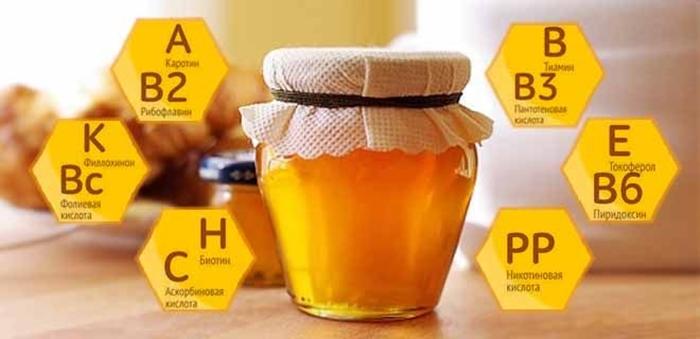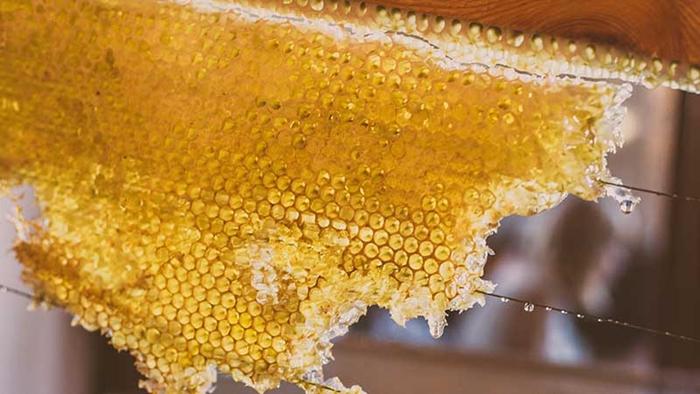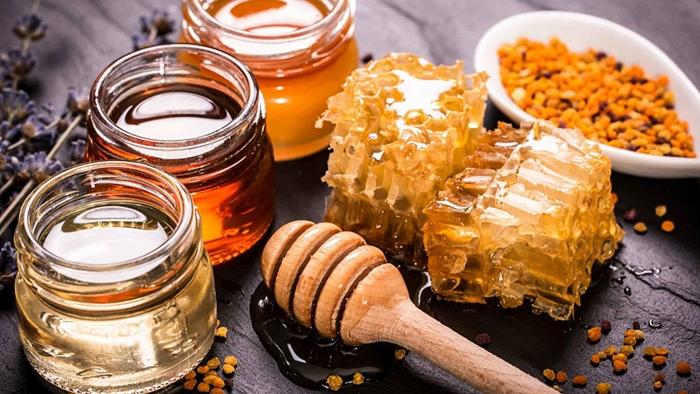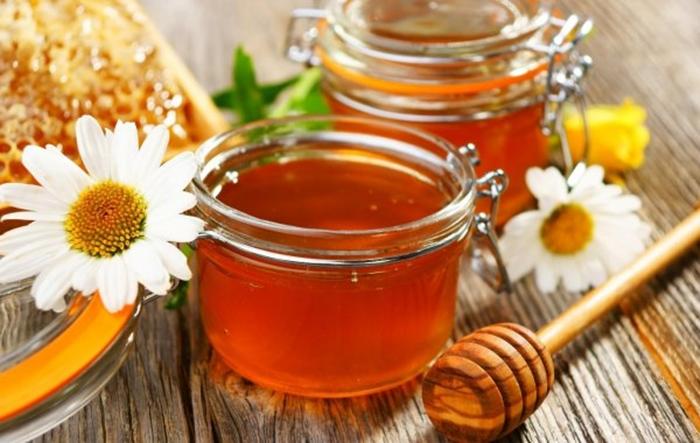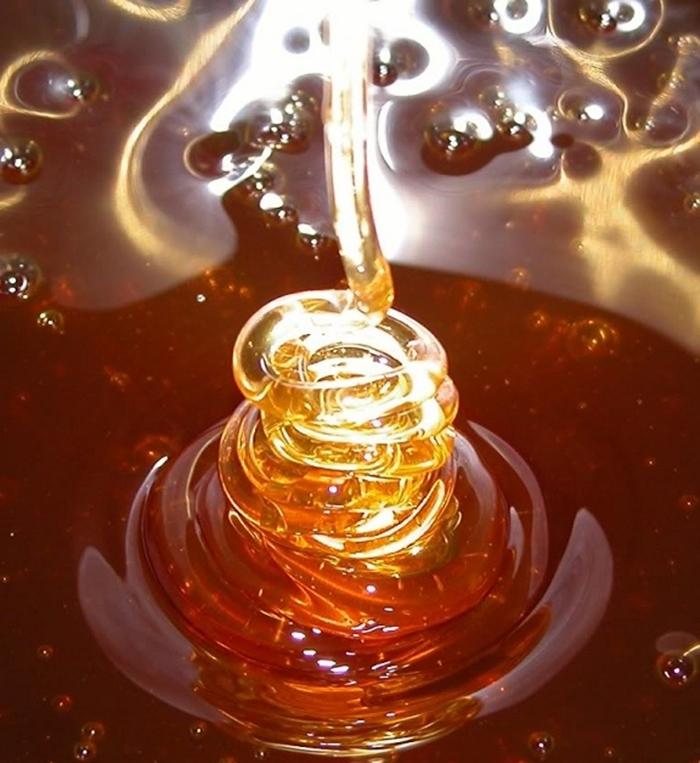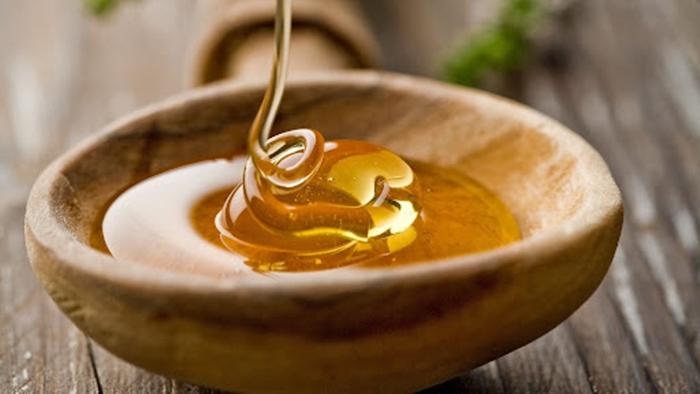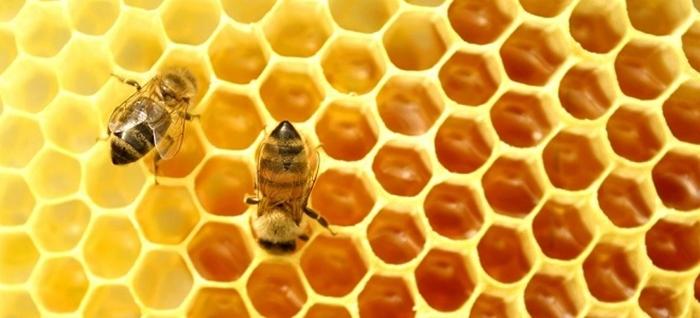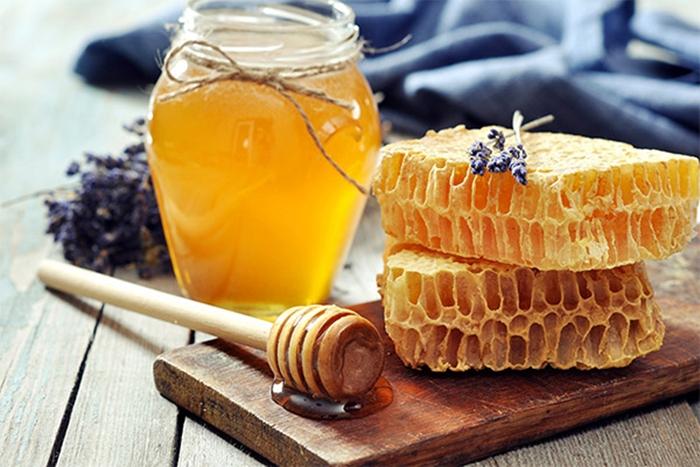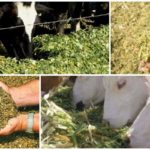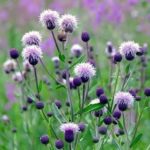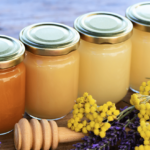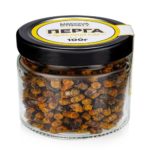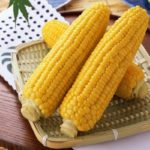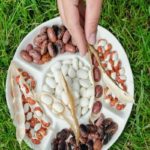Since ancient times, honey has been famous not only as a sweet and tasty dessert, but also as a healing product beneficial to the human body. Nectar is used for the prevention and treatment of many diseases, improves immunity, and has general strengthening and anti-inflammatory effects. The product received healing properties due to its rich chemical composition. We will look further into what vitamins, minerals and other beneficial compounds are found in bee honey.
Vitamin A
Honey contains retinol, which is necessary for the clear and proper functioning of the human body.
Basic properties:
- helps improve the functioning of the visual organs;
- participates in metabolic processes;
- has a beneficial effect on the functioning of the liver, digestive and respiratory organs;
- activates brain activity;
- provides the skin with elasticity, inhibits its aging;
- strengthens the body's defenses against the negative effects of the environment, prevents damage by viruses and bacteria.
A lack of retinol results in dry skin, blurred vision and frequent colds. The daily requirement of an adult body for retinol is from 1.5 to 2 mg. 100 g of bee gift contains 0.04 mg of vitamin A.
Important! An excess of retinol causes complications in the digestive and nervous systems of the human body.
B vitamins
The natural gift of bees contains almost the entire line of B vitamins.
- Thiamine is responsible for the health of the inert system, including teeth, helps cleanse the body of harmful and toxic accumulations, improves digestive functions, the condition of the skin and hair. Per 100 g of fresh nectar there is 0.01 mg of the substance.
- Riboflavin is directly involved in metabolic processes, helps in the healing of wounds and ulcers on the mucous membrane of internal organs, and has a beneficial effect on the nervous system. The content of vitamin B2 in honey corresponds to 0.03 mg, which is many times higher than the amount of riboflavin in healthy dried apricots and grapes.
- Niacin is responsible for the functioning of the cardiovascular system, helps relieve fatigue, improves vision and slows down the aging of the body. The substance also has analgesic and anti-inflammatory properties. Per 100 g of beekeeping product there is up to 0.2 mg of niacin.
- Pantothenic acid activates brain function, relieves fatigue and nervous tension, accelerates metabolism, and promotes proper liver function. Per 100 g of bee gift there is up to 0.13 mg of vitamin B5.
- Pyridoxine helps restore the functioning of the central nervous system, eliminates depression and insomnia, and is used for exacerbation of chronic skin diseases. 100 g of natural flower honey contains 0.10 mg of vitamin B6.
- Folic acid strengthens the body's resistance to various viruses and bacteria, has a beneficial effect on hematopoietic processes, and is necessary during pregnancy for the proper development of the child. Per 100 g of sweet nectar there is 0.015 mg of vitamin B9.
Vitamin C
The beekeeping product contains a large percentage of ascorbic acid. Vitamin C strengthens the immune system, helps in the fight against viral and colds, and improves the condition of the skin. Ascorbic acid also takes part in the internal processes of the body and promotes the removal of toxic and harmful deposits.
Per 100 g of fresh flower nectar there is up to 2 mg of useful substance.
Vitamin H
The delicacy contains biotin, which is responsible for the health of hair and skin. Vitamin H also ensures proper and smooth functioning of the nervous system. In 100 g of sweetness there is up to 0.04 mg of useful compounds.
Vitamin E
Tocopherol has anti-inflammatory, restorative and antiseptic properties, improves brain function, and slows down the aging of the skin.100 g of flower delicacy contains up to 4 mg of vitamin E.
Vitamin K
The substances that make up the vitamin promote the production of protein, which, in turn, is responsible for blood clotting processes. The substance also strengthens the bone structure, improves the condition of the skin and hair. And these are not all the useful compounds that are part of flower honey.
Important! The amount of healing substances and the quality of the vitamin composition may vary depending on the type of beekeeping product.
Useful elements
Nectar contains healthy sugars, represented by fructose, glucose, sucrose and other carbohydrate compounds. Honey also contains organic and inorganic acids, aromatic and biologically active substances. The amount of water in a bee product depends on the variety, place of collection and time of year when the bees obtained nectar.
Micro- and macroelements
Minerals are essential for every person's health. Honey contains a huge number of macro- and microelements that are responsible for various functions in the body.
The main minerals that make up natural honey are presented in the table:
| Minerals | Content per 100 g of fresh product |
| Potassium | Up to 65 mg |
| Copper | Up to 32 mg |
| Fluorine | Up to 8 mg |
| Phosphorus | Up to 7.5 mg |
| Calcium | Up to 5 mg |
| Chromium | Up to 5 mg |
| Magnesium | Up to 3 mg |
Nectar also contains iron, manganese, zinc, boron and other useful mineral compounds.

